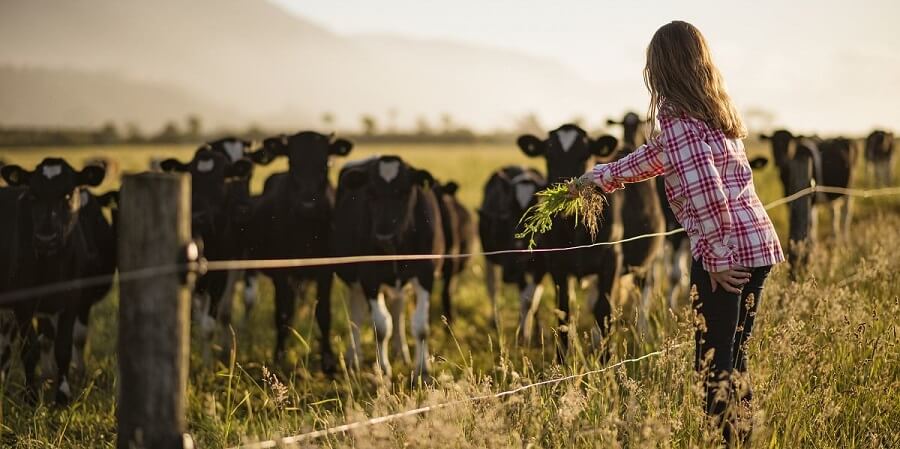BNZ primary sector outlook: Cause for optimism
21 Dec 2020
It’s been a tough year by any measure, but New Zealand’s primary sector has much to be proud of. Dave Handley, BNZ General Manager of Agribusiness, reflects on agribusiness’ role in helping lift the economy and the challenges and opportunities for 2021 that should have farmers feeling cautiously optimistic.
We spoke earlier in the year about optimism in the primary sector post Covid-19, as the New Zealand economy turned to our food producers to see us through an uncertain time. The BNZ Shift Happens report showed only 58% of primary producers were positive about the opportunities for the future of agribusiness pre Covid-19, compared with 89% during the April Lockdown.
Much has happened since lock down. A crystal ball on weather patterns, labour availability and regulatory requirements for 2020 would have saved some sleepless nights, let alone the ensuing trade and market tensions as a result of various governmental responses to Covid-19. But in general, the primary sector is in good shape as we close out 2020.
Product prices are holding up better than they might have over recent months, with both lamb and dairy pricing around their five-year averages, and horticulture is up on last year (and more than 10% above average). Low interest rates, and some positive news on Covid-19 vaccines and associated medium term world growth prospects have no doubt helped.
Looking to 2021, cautious optimism may well define the mood around rural Christmas tables as we consider the opportunities for the sector. There are still compliance challenges from environmental regulation, the ever-present weather threat and finding good people, but there are also opportunities:
Farm sales market
We’re seeing positive movement in farm and orchard sales. Interest from local investors and new entrants, as well as established farmers, is helping to buoy the market. Agricultural yields look more attractive for investors as interest rates remain low and banks actively look to support these new opportunities. This is good news for farmers who are considering succession options, exiting the industry or maybe thinking about heading to the beach permanently.
Make hay while the sun shines
Low interest rates and historically strong commodity prices mean that 2021 is well set-up to help deliver cash surpluses, enabling the repayment of debt and further strengthening balance sheets. Having a clear plan is a great way to get into a strong position, both financially and environmentally.
Know your numbers
When it comes to environmental management, the same thinking about business strategy applies. 2021 provides an opportunity to ensure your business numbers include not only your financial budget, but also a nutrient budget and ideally an emissions profile. Banks consider environmental, social and governance (ESG) factors when analysing a business’s operations, making lending decisions and assessing risk. Being able to provide evidence of these aspects in business planning and decision making is no longer just a ‘nice to have’. Read how you can set up your agribusiness for long term sustainability and success.
Compliance
Compliance related costs are part and parcel of farming. Farmers must have a clear plan, a staged approach and understand what investment their farm may, or may not, need to achieve compliance while keeping costs manageable. We encourage farmers to consider Good Farm Management Practices and how they relate to their business, what the ESG risks are across their business and what appropriate mitigation options could be. Have a read of our fact sheets on greenhouse gas reduction targets and how the Emissions Trading Scheme works, and Forestry for Carbon sequestration. We’re proud to have seen some of our customers leading the industry in this space, with their effective management of on farm natural resources. Take a look at what Momona Farms have been doing to manage their natural capital:
Whether you’re looking to implement leading sustainability practices or to ensure you meet your environmental obligations, our Agribusiness and Natural Capital team can help you plan for the future. Feel free to reach out to an agribusiness specialist in your region.
The weather
The government has declared a climate emergency and while mother nature’s ferocity is nothing new, the droughts, floods and extreme weather events of 2020 will almost certainly continue. For a sector which relies on its ability to grow high quality food, business plans need to have robust contingencies for these events, and a long-term plan for how your business may need to change as the climate does.
The rise of sustainable finance
With a focus on tackling the “climate emergency” and ensuring business plays its part in delivering a more sustainable economy, the finance sector will progressively adopt stronger sustainability policies that influence lending and investment decisions throughout 2021. The primary sector presents an opportunity to structure sustainable finance opportunities or link the ESG goals of ambitious farmers, to their cost of borrowings, incentivising them to continually strive for ESG excellence. Supporting farmers to make continuous improvements and excel when it comes to the sustainability of their business and land is essential to the ongoing success and ambitions of the sector.
So, much to look forward to for New Zealand’s primary sector. But with continued uncertainty for the next 12 months it pays to be prepared, be ambitious and plan ahead. Check out our tips for farm budgeting and planning. And if you’d like to schedule in a time to chat to one of our specialist agri bankers, we are offering free business health checks which you can book easily online. They are a great opportunity to discuss any ideas you’ve had over the holiday period and help you to kick off any plans you have for 2021.
Most importantly, take a break. This year has been tough, and New Zealand’s farming community deserves a moment to pause and reflect on its effective response to a global pandemic and its contribution to New Zealand’s economic recovery. Not many will tell you in person, but the country thanks you.
The information and recommendations in this article are the personal views of David Handley and do not necessarily represent the views of BNZ, or its related entities.
The information in this article is provided for general purposes only, and is a summary based on selective information which may not be complete for your purpose. To the extent that any information or recommendations in this article constitute financial advice, they do not take into account your financial situation or goals and is not intended as personalised financial advice. While BNZ has made every effort to ensure that the information provided is accurate, you should not rely on this information to make any financial decision without first having sought advice specific to your circumstances from an authorised financial adviser. Neither BNZ nor any person involved in this article accepts any liability for any loss or damage whatsoever which may directly or indirectly result from any advice, opinion, information, representation or omission, whether negligent or otherwise, contained in this article.



